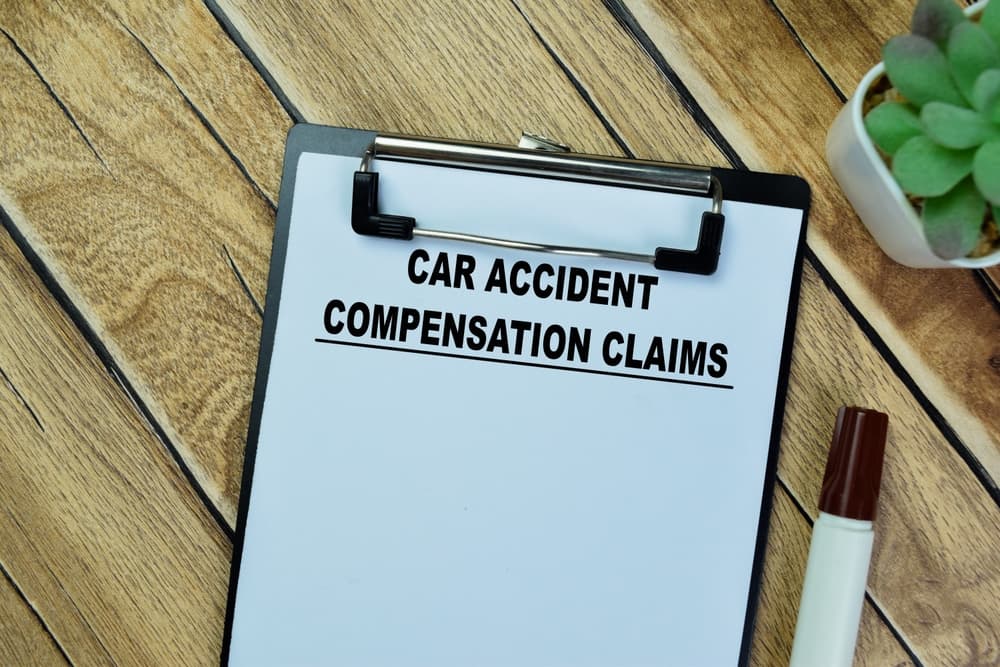When someone suffers injuries in a car crash that results from someone else’s negligence, they will typically need to deal with one or more insurance companies. In addition to reporting the accident to your insurance company, you may also have to deal with the at-fault party’s insurance company.
Dealing with insurance companies on your own is often a serious mistake. In any situation, the better option is to retain a highly experienced and powerhouse car accident lawyer who will handle all insurance company communications for you and negotiate with insurance company adjusters on your behalf. Your attorney will have the skills and knowledge necessary to effectively communicate with the insurance company and pursue the maximum compensation you deserve for your injuries.
Ensure you take time to find the right car accident lawyer who will treat you with compassion and respect, while fiercely advocating for justice and full compensation from liable parties.
Types of Insurance Claims After a Motor Vehicle Accident

In the aftermath of a car accident stemming from another driver’s negligence, navigating the insurance claim process is necessary for victims to seek legal recourse. The insurance process will vary depending on where the accident happened, as different states follow different auto insurance policies.
Most states are fault-based, which means seeking compensation through the at-fault driver’s liability insurance is the common course of action. This at-fault insurance claim typically addresses the victim’s accident-related medical bills, lost income, property damage, and more. However, the adequacy of this compensation depends on the at-fault driver’s available policy limits of coverage and other factors.
When the at-fault driver lacks sufficient insurance coverage, the accident victim’s uninsured/underinsured motorist (UM/UIM) policy frequently comes into play. This safeguard ensures that the victim can still pursue compensation for their injuries, bridging the financial gap left by the negligent driver’s inadequate coverage.
Property damage claims, distinct from personal injury claims, enable victims to recoup vehicle repair or replacement costs. This process involves seeking benefits from the at-fault driver’s property damage liability coverage or relying on one’s collision coverage, depending on the circumstances and applicable policies.
Moreover, if the accident resulted in a fatality, the victim’s family may explore a wrongful death claim. This legal avenue seeks compensation for the emotional and financial losses incurred due to the death of a loved one, holding the negligent party accountable.
Navigating the complicated web of insurance claims requires a comprehensive understanding of an accident’s specific circumstances and how insurance coverage works. Every victim should immediately hire an experienced car accident lawyer who will explore every possible option for compensation.
By strategically pursuing these varied claims, victims can address the physical, emotional, and financial consequences of a car crash resulting from another driver’s negligence. Trusted legal representation ensures a thorough evaluation of the case, identifying all potential avenues for compensation and advocating for the victim’s rights to justice throughout the process.
How a Lawyer Handles Insurance Settlement Negotiations After a Car Accident
While insurance companies are supposed to provide a fair settlement to people with valid claims, they often prioritize their own financial interests over yours. This is where hiring the right aggressive lawyer can make a significant difference in the outcome of your insurance settlement negotiations.
Unlike the insurance adjuster who works for the insurance company, an experienced lawyer will have your best interests in mind. They will handle all negotiations on your behalf, ensuring that you are not taken advantage of during the process. A lawyer will have the knowledge and experience to handle insurance claims and will fight tirelessly to maximize your settlement.
One of the most important roles a lawyer plays in insurance settlement negotiations is gathering evidence to support your claim. They will thoroughly investigate the accident, review medical records, and consult with experts if necessary to build a strong case on your behalf. With this evidence, your lawyer will present a compelling argument to the insurance company, demonstrating the extent of your injuries, the impact on your life, and the financial damages you have incurred.
In addition to gathering evidence, a lawyer will also handle all communications with the insurance company. This includes negotiating the settlement amount, responding to any requests for documentation, and upholding your rights throughout the process. Having a lawyer by your side can relieve the burden of dealing with the insurance company yourself and give you peace of mind knowing that a professional is advocating for your best interests.
Insurance settlement negotiations can be complex and time-consuming. Without the guidance of a lawyer, you may inadvertently say or do something that could harm your case. A lawyer will be familiar with the tactics insurance companies commonly use to undervalue or deny claims and will know how to counteract them effectively. By leveraging their negotiation skills and legal knowledge, they will strive to secure a fair and equitable settlement that fully compensates you for your losses.
Immediately hiring a lawyer to handle your insurance settlement negotiations after a car accident is crucial. They will protect your rights, gather evidence, handle all communication with the insurance company, and negotiate on your behalf. With a lawyer by your side, you can have confidence that you are pursuing the maximum compensation you deserve for your injuries and damages. Don’t hesitate to reach out to a lawyer experienced in car accident insurance claims to ensure the best possible outcome for your case.
Possible Compensation in a Car Accident Case
When pursuing financial compensation after a car accident, victims have the opportunity to recover compensation for an array of damages, both economic and non-economic:

- One significant component is past and future medical expenses. A comprehensive settlement or successful litigation can address the costs incurred for medical treatment, surgeries, therapy, and ongoing care. This compensation ensures that victims can access necessary healthcare without financial burden.
- Lost income, another fundamental economic consideration, acknowledges the financial repercussions on victims who cannot work due to injuries sustained in the accident. This compensation includes the recovery period and, in cases of permanent disability, extends to the loss of future earning capacity. Loss of earning capacity, distinct from lost income, accounts for the long-term impact on the victim’s living ability. This consideration is especially important when injuries result in a diminished capacity to work or a need for a career change.
- Compensation for past and future pain and suffering acknowledges the enduring physical and emotional distress resulting from the accident. This non-economic damage goes beyond direct medical costs, recognizing the intangible toll on the victim’s overall well-being and quality of life.
- In addition, loss of consortium, another type of non-economic damage, pertains to the intangible damages the victim’s family has suffered. Spouses may experience a diminished quality of companionship and support due to the injuries, warranting compensation for this emotional toll on relationships.
- Permanent disfigurement or disability warrants compensation to address the lasting impact on the victim’s appearance or functionality. This acknowledgment of enduring physical changes aims to provide financial support for coping with the emotional and practical challenges associated with permanent alterations.
- Financial compensation becomes a crucial factor in cases involving the loss of use of a body part. The victim’s injuries may significantly impair their ability to lead a normal life, necessitating compensation to address the tangible and intangible losses associated with the diminished use of a limb or organ.
- Lost quality of life encompasses other intangible aspects of life that may become compromised due to the accident. This broad category seeks to compensate victims for the limitations imposed on their ability to enjoy recreational activities, relationships, and overall life satisfaction.
The financial compensation available to car accident victims through settlement or litigation should be comprehensive, covering all medical expenses, lost income, earning capacity, emotional distress, loss of consortium, and the lasting impact on their physical well-being and quality of life. Each element contributes to crafting a comprehensive and equitable resolution that reflects the full scope of the victim’s losses.
How Do Negligent Driving and Roadway Defects Cause Traffic Accidents?
Driver negligence and roadway defects are common reasons for traffic accidents, often resulting in severe injuries. Reckless driving can include dangerous behaviors such as speeding, aggressive maneuvers, and highly distracted driving. When drivers fail to adhere to traffic rules and exhibit a lack of caution, the risk of collisions and injuries escalates.
Tailgating, another reckless driving behavior, increases the probability of accidents. Failure to maintain a safe following distance compromises reaction time, leaving little room to avoid collisions. Such incidents can lead to a domino effect, involving multiple vehicles and causing injuries to many people.
Roadway defects, from poorly maintained surfaces to inadequate signage, constitute an additional risk. Potholes and uneven pavements can destabilize vehicles, leading to loss of control and subsequent accidents. Furthermore, inadequate signage or unclear road markings confuse drivers, creating additional risks of collisions.
Insufficient street lighting, especially during nighttime, increases the risks of roadway defects. Reduced visibility due to poorly lit areas amplifies the chances of accidents, as drivers may struggle to see obstacles or hazards in their path. These conditions significantly contribute to the occurrence of accidents and injuries.
Whether a crash happened due to the negligence of a driver or another party, victims still deserve full compensation for their injuries and losses. Anyone with injuries should discuss how to get justice and payment with a skilled car accident lawyer.
How the Force of a Car Accident Causes Various Injuries
When a car accident occurs due to a driver’s negligence, the force of the impact can lead to a variety of physical and mental injuries.
Physically, the abrupt deceleration during a collision subjects the human body to intense forces, often resulting in a spectrum of injuries. For example, whiplash, a common consequence of rear-end collisions, manifests as a neck injury due to the sudden and forceful back-and-forth movement of the head. This can lead to neck pain, stiffness, and headaches, with symptoms sometimes surfacing days after the accident. In addition, the impact’s force can cause fractures and contusions, affecting various body parts, from limbs to the chest, depending on the collision dynamics. Traumatic brain injuries (TBIs) can be another severe outcome of high-impact collisions. The force exerted during a crash may cause the brain to collide with the skull, leading to concussions or more severe injuries. These injuries often have lasting consequences, affecting cognitive functions, memory, and overall mental well-being.
Beyond the physical realm, the psychological toll of a car accident caused by negligence can be profound. Post-traumatic stress disorder (PTSD) can develop, particularly if the accident is traumatic or life-threatening. Flashbacks and anxiety may plague the individual, altering their emotional landscape and affecting daily life. Furthermore, depression frequently accompanies the aftermath of a car accident, further intensifying mental strain. Nightmares and sleep disturbances are also common, exacerbating the toll on mental health. The disruption that injuries cause, coupled with the financial and legal aftermath, can lead to a heightened sense of vulnerability and stress.
The impact of a car accident extends beyond the immediate physical injuries; it can affect a victim’s mental and emotional well-being. Recognizing and addressing these consequences is crucial in providing comprehensive care for individuals navigating the aftermath of a collision caused by another driver’s negligence.
Seeking legal support from a car accident lawyer ensures the proper consideration of these complex aspects when pursuing just compensation.
Call an Experienced Car Accident Lawyer Today for More Information
An insurance company is never on your side after you have sustained injuries in a motor vehicle accident. An assertive car accident lawyer in your area can aggressively negotiate on your behalf and oversee all written and oral communications with insurance company representatives. If litigation becomes necessary in your case, your lawyer can promptly file a lawsuit in the state court system on your behalf — well within the statute of limitations — and, if necessary, take your case to a civil jury trial or alternative dispute resolution (ADR) proceeding.
Your personal injury attorney will do everything possible to maximize your overall compensation, ensuring you become whole again to the greatest extent possible. Seek your free consultation today.










